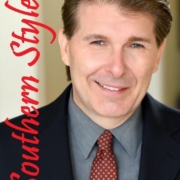Why Do Our Dreams Return Us to Familiar Places?
Why do our dreams so often transport us to familiar settings—our childhood homes, old schoolyards, or long-forgotten rooms? For me, these recurring landscapes are no coincidence. I believe our minds seek comfort in the known, anchoring us in spaces where we once felt safe to help us rest, reflect, or even receive deeper insights. My dreams, in particular, consistently return me to my childhood home, a place of warmth and security that continues to shape my sleep and my soul.
In these dreams, I’m back in that modest house, creaky wooden floorboards underfoot, the faint scent of my mother’s L’Origan perfume lingering in the air. The faded diamond-patterned wallpaper in the hall is just as I remember, though the scenes often defy time. I might be my current age, chatting with my parents about challenges they never witnessed, or joined by an old friend I’ve lost touch with, as I was just last night. Nothing extraordinary happens—just a visit, a conversation—but I awaken wondering what it meant. Was that dream a quiet reassurance that my friend, wherever they are, is okay? These familiar surroundings feel like a canvas where my mind paints comfort and connection, even when reality offers none.
This sense of comfort leads me to reflect on why my mind chooses this setting. I’ve read that our brains often choose familiar settings in dreams to process emotions in a safe, recognizable context—a theory that feels true to my experience. My childhood home isn’t just a backdrop; it’s a sanctuary where I feel grounded, whether I’m reliving memories or imagining new moments. It’s not my favorite vacation spot or a fantastical realm—it’s the place where I felt loved, allowing me to rest deeply or confront life’s uncertainties with clarity.
In my youth, dreams of home felt like more than nostalgia. As I pursued a career in entertainment, I believed God used these familiar rooms to offer guidance, showing me paths I might have avoided—opportunities my fears could have blocked or people I wouldn’t have met. These dreams were guideposts, blending divine insight with the study and practice of my waking life. Another dream left me awestruck: I saw a portly, gray-haired black woman, unknown to me, tenderly caring for a young boy. She addressed me by name, offering gentle advice with a warm smile, as if I were one of her charges. A man’s voice called her Grace. When I shared this with my mother, she was stunned. Grace, who died before I was born, had generously given her time caring for my older brother when my mother was a struggling single working mom, long before my time. I’d never heard her name, yet there she was, a guardian angel in my dream. My mother’s eyes lit up, and she said, “You have a wonderful guardian angel watching over you.” Though I didn’t always follow such guidance perfectly, these dreams shaped my path, placing me where I could grow and serve.
But dreams of familiar places aren’t always serene. Nightmares from my youth—tossing and turning in my twin maple bed—still linger in my psyche, like one so vivid I woke bouncing in fear, running to my parents for comfort in the wee hours. These moments, though rare, show that even in distress, our minds cling to familiar settings to confront hidden fears or traumas. For me, such nightmares are exceptions, and my long-ago home remains a refuge where sleep brings solace.
So why do our dreams return us to familiar places? I believe they are the heart’s safe harbor, where we rest, reflect, and sometimes glimpse deeper truths. Whether it’s my childhood home, your old classroom, or another’s quiet street, these settings remind us that even in sleep, we seek comfort to face life’s uncertainties. For me, these dreams are a gift—a blend of memory, faith, and hope that guides me, one familiar place at a time.








